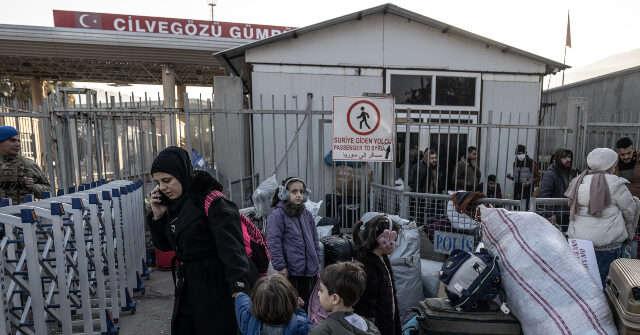In a controversial move, mayors from Turkey’s opposition Republican People’s Party (CHP) are offering Syrian refugees free one-way tickets to return home, citing the removal of dictator Bashar Assad as a significant development. Critics have labeled this initiative as condescending and discriminatory, interpreting it as a clear message for refugees to leave. Many argue that the current climate in Syria, increasingly dominated by Islamist factions, may pose as much danger to the refugees as the rule of Assad did. This situation has reignited debates about the status of over three million Syrian refugees in Turkey, who have been the subject of ongoing political discourse since their arrival during the decade-long civil war.
Local sentiments regarding Syrian refugees have been a mixed bag, as illustrated by frequent demonstrations from the refugees themselves about mistreatment and allegations from Turkish citizens that the refugees contribute to criminal activity. This atmosphere has been compounded by the tough political climate in Turkey, particularly after President Recep Tayyip Erdogan’s recent re-election, which saw him adopt a more aggressive stance on deporting refugees. The CHP’s increased political presence has led to heightened pressure on Erdogan to address the issue while also suggesting a potential willingness to broker a deal with Assad for repatriation, which now seems imminent following the news of Assad’s fall from power.
The CHP mayors have actively showcased the joy of Syrian refugees celebrating Assad’s removal as part of their call for repatriation, incorporating celebratory footage into their campaigns. They pledge to facilitate the return of refugees, offering to cover the costs of bus tickets for those looking to rejoice in their homeland. However, many of the refugees that fled Syria initially hail from regions now under the control of Hayat Tahrir al-Sham (HTS), an al-Qaeda offshoot that has taken over strategic cities and has shown intent to impose an Islamist regime over the region. This situation complicates the narrative that returning will necessarily mean safety and stability for the refugees.
On one hand, some refugees are indeed eager to return to Syria quickly, with reports of hundreds forming lines at border crossings waiting for Turkish approvals to make the crossing back home. For many, the prospects of family reunification and the downfall of Assad is enough motivation to leave behind the challenges faced in Turkey. This urgent desire is fueled by past trauma inflicted by the Assad government, which previously displaced millions of Syrians. Such sentiments indicate that while some refugees may feel compelled to return, others are likely remain apprehensive about the realities awaiting them in a post-Assad Syria, potentially trapped between returning home and the risk of facing renewed conflict.
Adding to the complexity of the refugee situation is the Turkish government’s strategy under Erdogan, who has suggested intentions to aid Syrian refugees in safely returning home while also engaging in discussions for Syria’s reconstruction. However, this plan notably excludes Kurdish groups, whom Turkey perceives as significant security threats. Turkish Foreign Minister Hakan Fidan’s remarks suggest a strategic motive behind the rapid return of refugees—gaining leverage over a divided Syria, particularly in regions close to Turkey’s border where Kurdish militias are active. The aim appears to be stabilizing the border to avert threats from these groups, while also fostering diplomatic relationships with other regional players, albeit excluding the Kurds.
As part of these efforts to facilitate the repatriation of refugees, Turkey recently reopened the Yayladagi border crossing to northwestern Syria, which had been closed since 2013. Erdogan emphasized the need to process the returning refugees efficiently, promising that they wouldn’t face long waits during the documentation process. This reopening is seen as a step toward accommodating the large number of Syrians wishing to return, although the political and security landscape in Syria remains fragile. Erdogan’s administration appears poised to align their strategies around managing refugee flows as part of an overarching plan to reshape relations within both Turkey and its neighbors in the region, navigating the delicate balance between addressing domestic pressures and international diplomatic relations amidst the evolving Syrian conflict.

